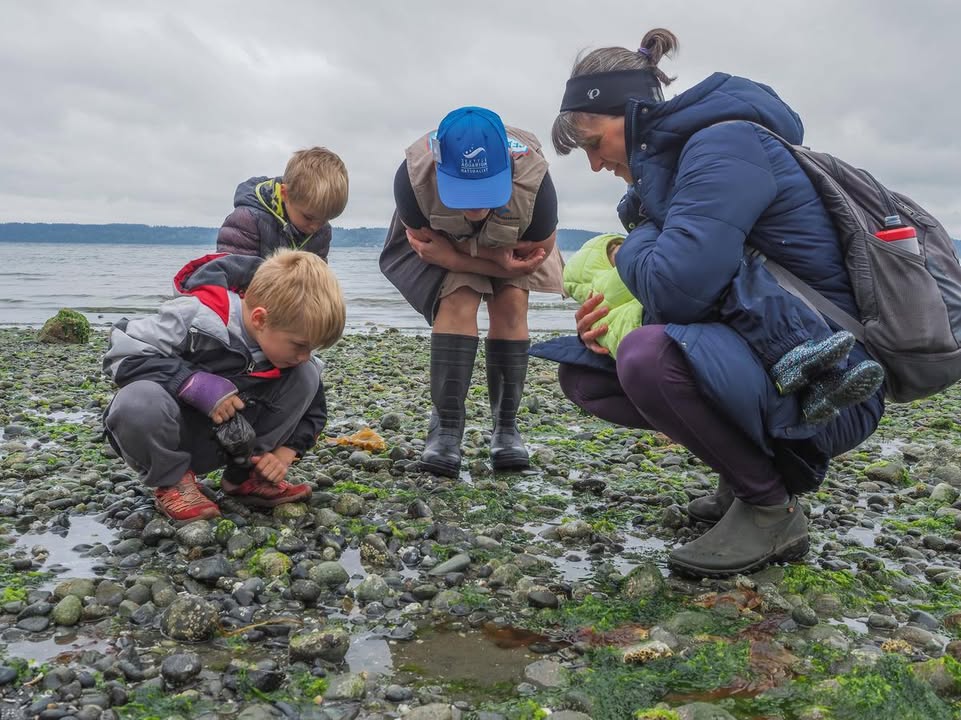- Volunteer beach naturalists and their role in conservation
- Importance of protecting beach ecosystems
- Fascinating behaviors of beach fauna: barnacles and moon snails
- What to expect during Beach Naturalist season
- Encouraging public involvement in wildlife conservation
Volunteer beach naturalists and their role in conservation
The arrival of summer brings with it an array of outdoor activities, but few offer the educational value found in the efforts of volunteer beach naturalists. These dedicated individuals play a crucial role in the conservation and education of beach ecosystems. By guiding visitors during low tide explorations, they foster a deeper understanding of coastal habitats. Their efforts not only educate the public but also protect vulnerable species and their habitats.
The volunteer program aims to bridge the gap between people and nature by providing insights into the lives of various marine organisms. These naturalists are equipped with extensive knowledge about local flora and fauna, allowing them to share compelling facts and foster a sense of responsibility toward these ecosystems.
Importance of protecting beach ecosystems
Beach ecosystems are vital, functioning as unique coastal environments that support diverse species. They act as nurseries for many marine organisms, offer feeding grounds for birds, and provide vital resources for other wildlife. However, these areas face numerous threats, including pollution, habitat destruction, and climate change. Protecting these ecosystems is essential for maintaining biodiversity and ensuring the health of marine life.
Volunteer beach naturalists teach visitors how to explore the shoreline responsibly. This includes walking cautiously to avoid disturbing wildlife, picking up litter, and fostering an overall sense of respect for the natural world. By understanding and advocating for these ecosystems, visitors contribute to sustaining them for future generations.
Fascinating behaviors of beach fauna: barnacles and moon snails
Barnacles and moon snails are among the many intriguing creatures that inhabit beach ecosystems. Barnacles, for instance, exhibit unique behavior by standing on their heads. They secure themselves to surfaces using their heads and use their long legs, called cirri, to filter food from the water. This adaptation allows them to thrive in the ever-changing intertidal zone where they reside.
Moon snails, on the other hand, are fascinating predators within these habitats. Known for their distinctive egg collars, moon snails lay their eggs in sand and wrap them with mucus, creating a protective casing. This reproductive strategy ensures the survival of the next generation in the dynamic beach environment. Learning about these organisms from volunteer naturalists offers visitors a glimpse into the complex lives of intertidal species.
What to expect during Beach Naturalist season
The Beach Naturalist season kicks off on Memorial Day and runs through the summer. Participants can look forward to guided explorations where they will learn about the unique behaviors and adaptations of marine life. These sessions offer an opportunity to witness firsthand the interactions between various organisms and their environment.
Volunteers are available to answer questions and provide detailed explanations about the local ecology. With scheduled activities at specific locations, participants can easily plan their visits. These excursions are designed to accommodate all ages, encouraging both children and adults to engage with nature.
Encouraging public involvement in wildlife conservation
Engagement in wildlife conservation is crucial for protecting our natural heritage. By participating in beach explorations and learning from volunteer naturalists, the public can develop a greater appreciation for the importance of preserving these ecosystems. Building awareness and fostering stewardship can lead to actionable change, benefiting both the environment and communities.
Public involvement extends beyond just visiting the beach. It includes advocating for policies that protect marine environments, supporting conservation initiatives, and making sustainable choices in daily life. These efforts collectively contribute to a broader movement aimed at ensuring the longevity of our planet’s coastal treasures.
In essence, the summer season offers a unique opportunity for individuals to connect with nature, learn from knowledgeable naturalists, and play an active role in conservation. By understanding the delicate balance of beach ecosystems and taking steps to conserve them, we contribute to preserving the natural world for generations to come.
*****
Source Description
Summer is right around the corner and that can mean only one thing: Our volunteer beach naturalists are headed back to the beach to explore low tide with you! 🐚
These naturalists know their stuff. They can help you explore gently to keep animals and their homes safe, explain why barnacles stand on their heads, describe how moon snails lay their eggs and so much more. 🐌
Our 2025 Beach Naturalist season kicks off this Memorial Day, Monday, May 26, and we hope to see you out there. See the full list of dates and locations on our website at the link in bio. 🔗


